The real life Private Ryan: Agony of the First World War mother who sent four sons into battle... but only one came back
By Jaya Narain
PUBLISHED: 21:14, 11 January 2013 | UPDATED: 22:30, 11 January 2013
In the Oscar-winning Hollywood film Saving Private Ryan, four young American brothers enlist and march off to war.
Tragically, only one returns home to their mother.
But in one English home struggling with the realities of global conflict decades earlier, the tale had already been played out.
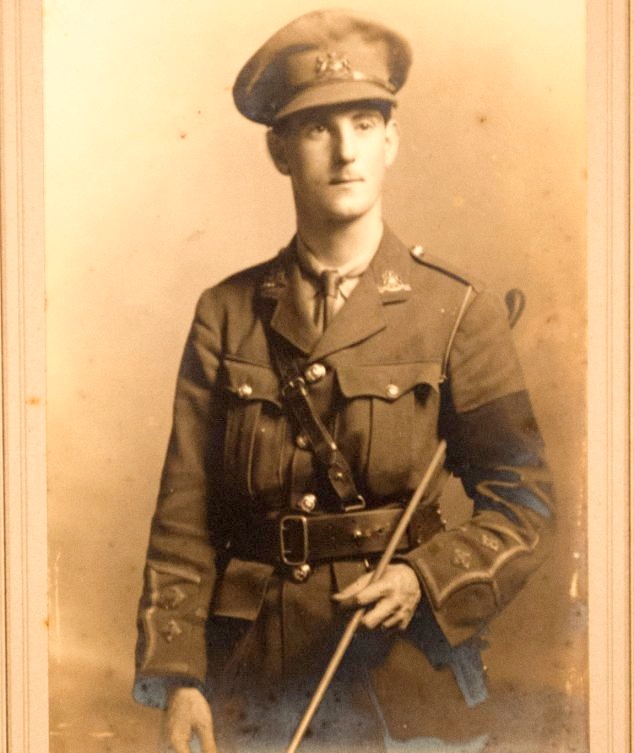
Injured but survived: Alfred, or Bobbie, managed to come back from battle, unlike his brothers
Rosalie Johnson's family was torn apart when she lost three sons in the horrors of the Great War – and received three heartbreaking telegrams informing her of each of their deaths.
Mrs Johnson's one consolation was that a fourth soldier son, Bobbie, survived, despite suffering appalling chest injuries in battle.
No doubt she would been proud that he rejoined the Army when war returned to Britain.
He became a Recruiting Officer in the Second World War, first in Wigan, and later in Carlisle, serving with The Border Regiment.
Bobbie died in London aged 62 in 1957.
For the first time, Mrs Johnson's extraordinary story – and its parallels with one of the most evocative tales of war – has come to light, after Kevin Walton began to research the names on a memorial in his church in Eccles, Greater Manchester.
He has unearthed stories of many of the 151 church members who died in the 1914-18 war.
Mrs Johnson, who had been widowed the year before, lost her eldest son, Second Lieutenant Henry Earlam Johnson in June 1915.
Aged 26, Henry enlisted in the King's Royal Rifles after returning from Ceylon (now Sri Lanka) where he had been working as a tea planter.
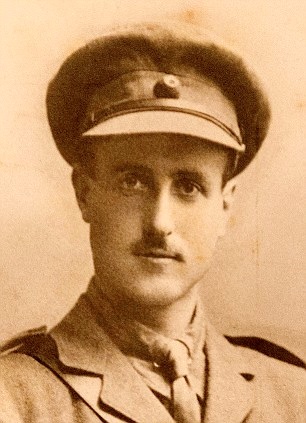
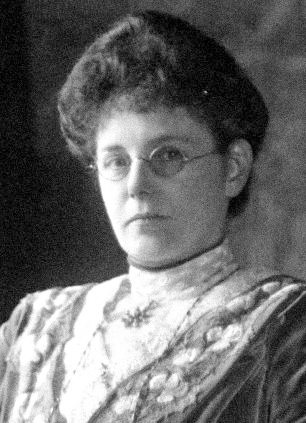
Henry Earlam Johnson, who was killed in World War One (left) and James's mother Florena Rosalie Johnson and wife to Alfred, James's father
The officer had only recently returned to the front after a short visit on leave to see his mother, when he was killed.
He is buried at Grenay in France, where more than 1,000 of the First World War fallen are commemorated.
The second brother to die was Pieter Cedric Earlam, who joined the Royal Flying Corps.
He was just 18 when he was posted to France, starting active service early because his rapid progress in training meant he gained his wings in an exceptionally short time.
He was dispatched to France on December 30, 1916, and sent a letter home describing his experiences.
'I have had one scrap so far,' he wrote. 'I had three Boche all firing at me at the same time but they gave up after hitting everything in the machine but the observer and me. We made it quite hot for them too.'
The life expectancy of airmen in the war was terrifyingly short and less than one month later, on January 28, while flying over German lines, an artillery shell exploded close to his aircraft.
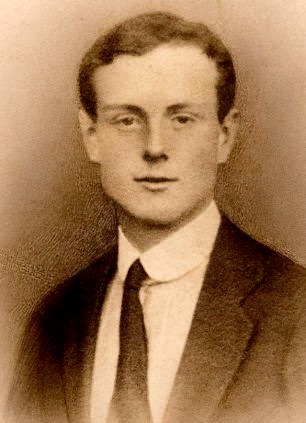
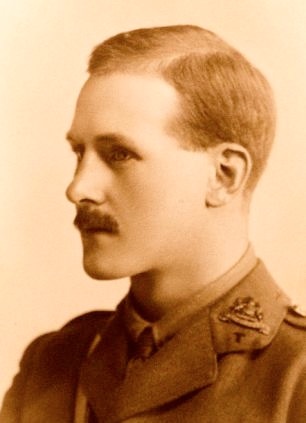
Band of brothers: Pieter Cedric Earlam Johnson (left) and William Godfrey Earlam Johnson
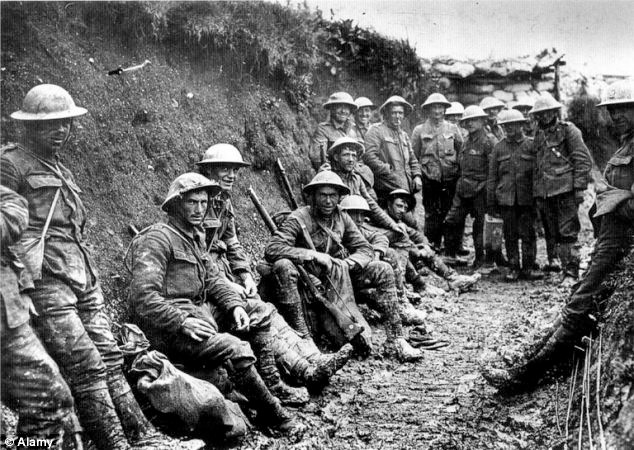
First World War party of Royal Irish Rifles in a communication trench on the first day of the Battle of the Somme
The plane appeared to descend slowly, as if under control, raising hope that both pilot and observer were alive and well, although taken as prisoners of war.
But days later, as British troops advanced over No Man's Land, his body was found half-buried in the thick mud.
Second Lieutenant Pieter Johnson is remembered on the Flying Services Memorial in Arras, not far from the site of older brother's grave.
Later the same year, Captain Godfrey Earlam Johnson, 24, of the Manchester Regiment became the third of the brothers to be killed.
He fought in the Gallipoli campaign in 1915 alongside his younger brother Alfred, known as Bobbie, who was promoted to Captain.
'I had three Boche all firing at me at the same time but they gave up after hitting everything in the machine but the observer and me.'
Pieter Cedric Earlam
Both were badly injured in battle and were transferred to a hospital in Valletta, Malta, to recover from their wounds.
Godfrey returned to active duty on the Western Front but was admitted to a casualty clearing station suffering gunshot wounds on October 11 and died two days later.
He is buried at the Zuydcoote Military Cemetery, near Dunkirk, where more than 300 of the Great War dead are commemorated.
Mrs Johnson's fifth son, James Frederick Earlam Johnson was too young to enlist in the First World War.
He remained single, moved to Cheltenham and became a doctor. He died at the age of 59 in 1966.
During his research Mr Walton, 62, an organist, travelled to the brothers' graves, and others in France and Belgium, to take photos for an exhibition he held at St Andrew's church this year.
Mr Walton said: 'All the stories I uncovered were sad, but the story of the Johnsons was a particularly poignant tale. The sacrifice that family made was astonishing. They were a very well-to-do family but like all the Pals Regiments that suffered enormously, they did their duty for King and Country, laying down their lives for us.'
Mrs Johnson died aged 74 in the midst of the Second World War in 1943. Following her death, her guardian and only surviving soldier son, Bobbie, at last felt able to marry his childhood sweetheart, Ena.
In 1946 their only son, James Alfred Earlam Johnson was born.
James, now 66, a retired chartered accountant, said: 'Obviously I never knew the three brothers who died during the Great War but their willingness to enlist, fight and die for their country, along with millions of other young men of their time is a matter of which, as a nation, we should be immensely proud, and must never be allowed to forget.'
Saving Private Ryan was loosely based on the story of the four Niland brothers from New York, who served in the Second World War.
After the reported deaths of his three siblings, Frederick Niland, was sent back to the US to complete his service.
He later learned that one brother, Edward, missing and presumed dead, was in fact alive after being held captive in a Japanese PoW camp.
The film, directed by Steven Spielberg and starring Tom Hanks and Matt Damon, won huge critical acclaim as well as five Oscars.